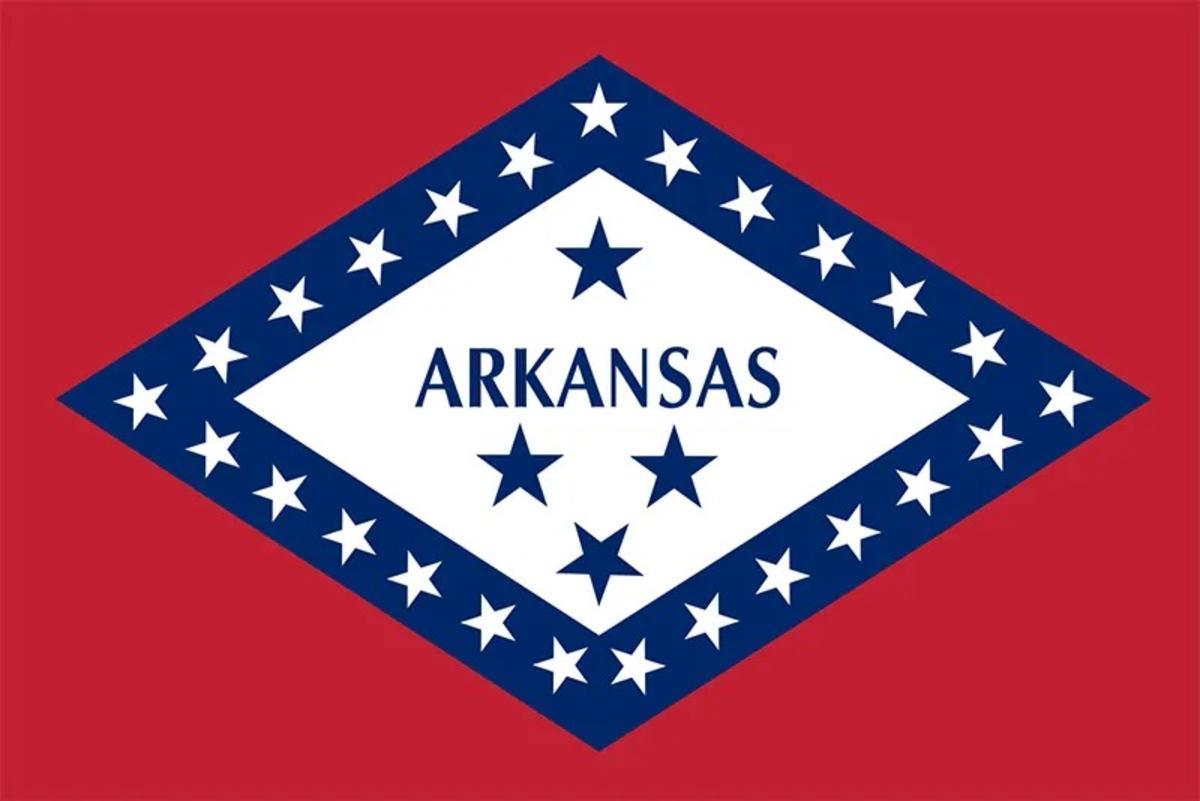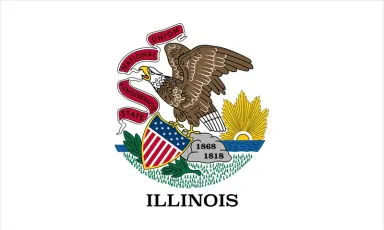Arkansas Trucking Laws

The Arkansas Highway System comprises more than 16,000 miles of US routes, interstates, state highways, and local roads. The I-40 and I-30 corridors have been identified as high-crash areas involving commercial trucks. Common causes of truck accidents in the state include fatigue, distracted driving, failure to yield, and speeding.
According to the Arkansas Department of Transportation (ARDOT), 76,326 crashes, on average, occurred annually from 2017 to 2021, with 544 fatalities, 2,057 serious injuries, and 6,673 minor injuries. Furthermore, based on the crash statistics report from the Federal Motor Carrier Safety Administration (FMCSA), 2,913 crashes involving 3,256 large trucks occurred in 2020. These crashes resulted in 101 fatalities and 1,243 injuries.
To support the country’s drive toward zero deaths on the roadways, Arkansas has released the Strategic Highway Safety Plan (SHSP) for 2022-2027. The SHSP outlines the states’ four emphasis areas to eliminate traffic fatalities, and they are listed below:
Safe road users
Safe vehicles
Safe roads and speeds
Post-crash care
To achieve the government’s goal of achieving zero deaths, the state implements several laws and policies. These will be discussed in more detail throughout this article.
Arkansas Speeding Law
Arkansas has two types of speeding laws – the basic speeding law and the absolute speed limit law:
Basic Speeding Law
Under this law, there are no specific speed limits. It only means that drivers should drive at a safe speed, which is appropriate and reasonable given the current and potential dangers, like bad weather and bad road conditions. The law also says that truck drivers must slow down before crossings, corners, and the tops of hills.
If a speeding truck driver causes an accident that hurts you, you should turn on your hazard lights, call 911, and ask for help if you need it. You must also stay calm and ensure everyone in the car is safe. Give the truck driver your information and a copy of his or her commercial driver's license. You must get the contact information of any witnesses and take pictures of the truck, the damage, and the accident scene. Report it to the police, and inform your insurance company about it. First and foremost, you should talk to a truck accident lawyer.
Absolute Speed Limits
The maximum speed limits for trucks on the roadways of Arkansas are as follows:
70 mph on rural interstates
65 mph on urban interstates (60 mph on specified roads)
75 mph on other limited-access roads
Penalties for speeding:
First offense - classified as a misdemeanor punishable by up to 10 days in jail and/or $100 in fines
Second offense - classified as a misdemeanor punishable by up to 20 days in jail and/or $200 in fines
Third offense - classified as a misdemeanor punishable by up to six months in jail and/or $500 in fines
Exceeding the speed limit by more than 15 mph - classified as a Class C misdemeanor punishable by up to 30 days in jail and $500 in fines
Arkansas Reckless Driving Law
Arkansas law prohibits reckless driving in all vehicles, including trucks. Truck drivers can face reckless driving charges if they speed, weave, or have poor vehicle maintenance. If convicted, truck drivers may face fines, imprisonment, and the loss of their commercial driver's license.
Penalties for reckless driving:
First offense (resulted in physical injury) - imprisonment of 30 to 90 days and/or a fine of $100 to $1,000
First offense (no physical injury) - imprisonment of five to 90 days and/or a fine of $25 to $500
Second and subsequent offenses within three years of the first offense (resulted in physical injury) - imprisonment of 60 days to one year and/or a fine of $500 to $1,000
Second and subsequent offenses within three years of the first offense (no physical injury) - imprisonment of 60 days to one year and/or a fine of $500 to $1,000
Arkansas Drunk Driving Law
Arkansas’ drunk driving law prohibits anyone under the influence of drugs or alcohol from driving or operating a motor vehicle. According to the National Highway Traffic Safety Administration, 12% of the statewide fatalities and serious injuries from 2016 to 2020 involved impaired drivers. These accidents resulted in 322 deaths and 1,545 serious injuries.
Penalties for drunk driving:
First offense - 24-hour to one-year imprisonment, $150 to $1,000 fine plus $300 court cost, and six-month license suspension
Second offense with a five-year period - seven-day to one-year imprisonment, $400 to $3,000 fine, and 24-month license suspension
Third offense within a five-year period - 90-day to one-year imprisonment, $900 to $5,000 fine, and 30-month license suspension
Fourth offense within a five-year period - classified as a felony, which is punishable by one- to six-year imprisonment, $900 to $5,000 fine, and four-year license revocation
Fifth and subsequent offenses within a five-year period - classified as a felony punishable by two- to 10-year imprisonment, $900 to $5,000 fine, and four-year license revocation.
When it comes to drunk driving laws, Arkansas holds commercial drivers to a higher standard. If a commercial driver's blood alcohol concentration (BAC) is 0.04% or higher, they could be charged with DUI. This is half of the limit for non-commercial drivers in Arkansas, which is 0.08%. Also, if a commercial driver is convicted of DUI, they could lose their license and be banned from driving a commercial vehicle. These stricter laws aim to keep Arkansas roads safe and prevent accidents caused by commercial drivers who are too drunk to drive.
Arkansas Distracted Driving Law
Arkansas defines distracted driving as the act of manually operating an electronic communication device (such as texting, dialing, or typing), talking on a hands-free or handheld electronic device, being emotional, nodding off, or being drowsy, as well as being preoccupied with a passenger or an object either inside the car or outside of it. Based on the Arkansas SHSP, 133 people died, and 1,578 suffered serious injuries in crashes involving distracted driving between 2016 and 2020.
Penalties for distracted driving:
First offense - $25 to $250 fine
Second and subsequent offenses - $50 to $500 fine
Fines are doubled when distracted driving results in collisions
Exemptions to the distracted driving law:
Emergency service personnel performing their duties
Reporting unlawful behavior
Calling for medical or other emergency support, or
Communications intended to prevent harm to a person or their property
If you are injured in a distracted driving accident, you are entitled to seek compensation from the negligent party. However, it may be challenging to get the maximum compensation you deserve without the help of an experienced truck accident lawyer. They can assist you in gathering pertinent documents regarding your injuries, reviewing the truck accident details, investigating the pieces of evidence, and negotiating with the defense attorney or the insurance company.
Arkansas Commercial Trucking Insurance Requirements
Local truckers and new ventures must carry a certain amount of liability insurance. The amount will depend on the freight truck's type and where it will be hauled. If the truck does not cross state borders and has a gross vehicle weight of more than 10,000 lbs, the company should secure an Arkansas permit number and maintain the following level of insurance:
$5 million - if the truck carries hazardous materials
$300,000 - if the truck carries household goods
$50,000/$100,000/$30,000 - if the truck carries general freight
$1 million - if the truck carries oil
$300,000 -for trucks weighing 10,000 lbs or below carrying non-hazardous cargo
$750,000 - for trucks weighing 10,000 lbs or greater carrying non-hazardous cargo
When a truck driver is at fault for an accident, the primary liability limits can pay for the victim's injuries, death, and property damage. In some cases, more than these amounts may be needed to cover the damage. Companies can also choose from the following types of trucking insurance coverage:
General liability - starts at $300,000 and covers risks outside of operating a truck, such as slip-and-fall accidents in the office and wrong deliveries
Physical damage - comprises collision coverage to pay for damages when the truck collides with another vehicle or property and comprehensive protection to pay for non-collision incidents, such as theft, vandalism, and fire. The amount of coverage depends on the value of the truck or trailer
Motor truck cargo - ranges from $400 to $1,800 per year and covers various scenarios, including stolen goods, damaged cargo due to water leaks, refrigeration breakdown, and loss of freight charges.
Bobtail insurance - pays for property damages or injuries while the trailer is detached from the truck
Non-trucking liability - pays for property damages or injuries while the truck is not being used for business purposes
Trailer interchange - ranges from $10,000 to $30,000 (with a $1,000 deductible) and covers trailers against physical damages during loading and unloading
Medical payments - pays for individuals riding or driving the truck with the owner’s consent
Uninsured/Underinsured motorist coverage- pays for damages caused by another driver who is uninsured or underinsured
Workers’ compensation - ranges from $4,560 to $8,550 per year and pays for injuries sustained by the company’s truck drivers who are injured while performing their job
Trucking umbrella insurance - can be obtained in $1 million increments. It covers gaps between your policies and increases your liability limits
How Much Can Someone Sue for a Truck Accident in Arkansas
Compensatory awards are based on economic, non-economic, and punitive damages. If someone else caused your injuries in a truck accident, hire an experienced truck accident lawyer to get the most money.
Economic Damages
Damages to the economy include fixing cars, paying medical bills, and losing the ability to work. A lawyer can help determine how much this damage costs by adding up lost wages, receipts, and bills.
Non-Economic Damages
Non-economic damages cover intangible and subjective losses resulting from the accident. These include pain and suffering, loss of companionship and consortium, and loss of quality of life. Arkansas does not limit the amount of non-economic damages a truck accident victim can receive. The most common method used by lawyers in computing non-economic damages.
Multiplier method - the amount is calculated by multiplying economic damages by a whole number
Per diem method - the amount is determined by multiplying the victim’s daily salary or per-day cost by the number of days until the victim recovers from their injuries
Punitive Damages
A judge or jury may award punitive damages if it is proven that the truck driver or the trucking company engaged in intentional misconduct or showed extreme recklessness. The limit on punitive damages awarded to the plaintiff should be $250,000, or three times the amount of compensatory damages, not to exceed $1 million.
Arkansas Statute of Limitations for Truck Accidents
The statute of limitations for truck accidents in Arkansas is three years. This means that individuals injured in a truck accident resulting from someone else’s negligence should file a lawsuit within three years of the collision date. A wrongful death claim should be filed within one year of the victim’s death.
Factors that affect the statute of limitations:
The victim is a minor - the clock begins when the victim turns 18
The other driver dies - a claim can be filed against the decedent’s heirs, executors, or administrators within one year of the decedent’s death
Medical malpractice - two years or one year from the date of discovery
Persons with disability - within three after the disability is removed
The discovery rule - the clock begins when the injury is discovered
Arkansas Is a Fault State for Insurance Claims
Arkansas is a fault state when it comes to auto insurance claims. This means the party at fault in a truck accident is responsible for the victim's damages and injuries.
If you are injured in a trucking accident, you have three options to recover compensation:
File a claim with your insurance company
File a third-party claim against the other driver’s insurance company
File a truck accident lawsuit in civil court
Arkansas Is a Modified Comparative Fault State for Trucking Accident Lawsuits
Arkansas adheres to a modified comparative fault system, under which the plaintiff’s percentage of fault will be deducted from the total compensatory award. The law also states that if the plaintiff is proven to be at least 50% responsible for the accident, they may not recover any damages.
For instance, if you are 20% responsible for the accident and suffered $100,000 in damages, your compensation will be $80,000. However, if you are 50% to blame for the accident, you will not receive compensation. The other party will try to blame the accident on you, so it is important to contact a trucking accident lawyer to handle your case.
Average Settlement for Arkansas Trucking Accident Lawsuits
Most truck accidents are catastrophic and result in lifelong disabilities and serious injuries. In a study by The Miley Legal Group, the national average settlement amount for back and neck injuries caused by semi-trucks is $1,527,215. Arkansas's average back and neck injury settlement is $266,667, with the highest amount of $800,000. These amounts should not be considered standard because truck accidents differ from case to case. Several factors should be considered when computing the compensation that a victim deserves. These factors are as follows:
Severity of injuries
Medical bills
Lost wages
Pain and suffering
Insurance policy limits
Fault percentage
Trial costs, if applicable
A truck accident lawyer can help determine a reasonable amount to ask for from the negligent party.
Legal Resources for Arkansas Trucking Accident Victims
Arkansas Insurance Department
The official website of the Arkansas Insurance Department provides information about the state’s rules and regulations affecting the insurance industry. It also allows citizens to file a complaint against an insurance company, agency, agent, appraiser, or adjuster.
Arkansas Commercial Driver’s Manual
The Arkansas Commercial Driver’s Manual discusses the state’s traffic laws and safe driving information. It also outlines instructions on acquiring a commercial driver’s license and operating a CMV.
Arkansas Department of Public Safety
The Arkansas Department of Public Safety is the central repository for all the crash reports in the state. Individuals may request a copy of the accident report virtually. Some of the information needed when requesting reports is the driver's full name, driver’s license number, birth date, and accident date.
Injury Law Rights
The Injury Law Rights provides pro bono and confidential personal injury case reviews.
Expertise.com StaffAuthor
Step into the world of Expertise.com, your go-to hub for credible insights. We don't take accuracy lightly around here. Our squad of expert reviewers, each a maestro in their field, has given the green light to every single article you'll find. From rigorous fact-checking to meticulous evaluations of service providers, we've got it all covered. So feel free to dive in and explore. The information you'll uncover has been stamped with the seal of approval by our top-notch experts.




